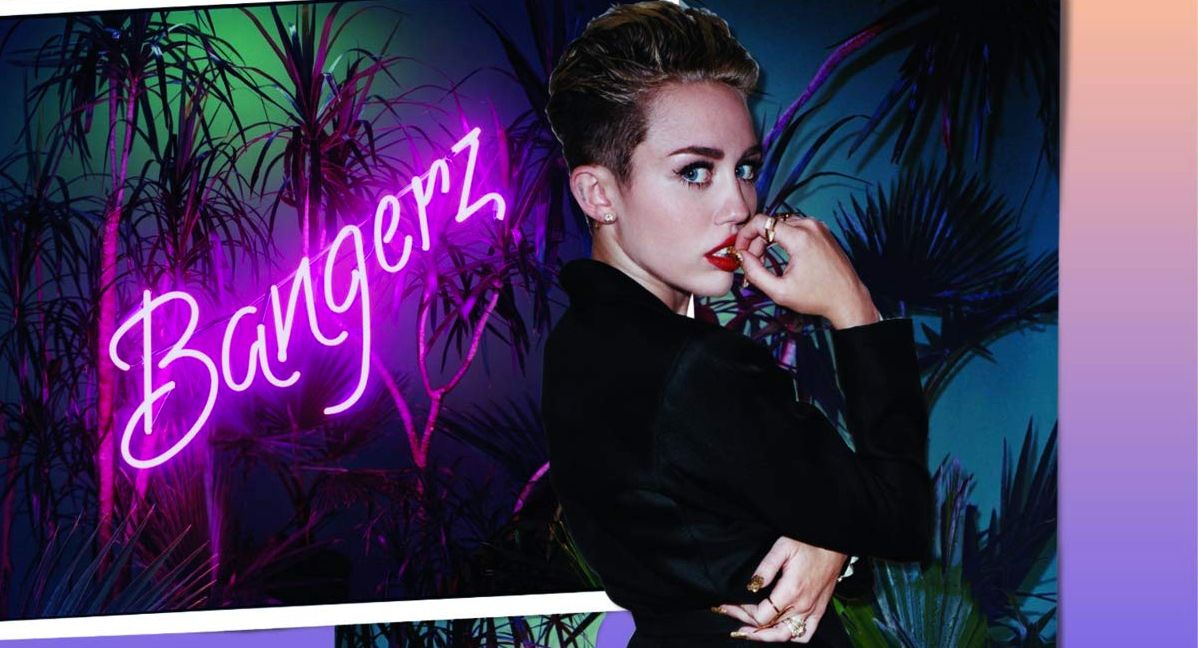2013: The Year That Everything Changed, Part 3


This is the third installment of a series of essays about how 2013 marked the point in which popular music and the culture around it changed forever. You can read the first installment here, and the second installment here. The next installment will come on Tuesday, September 15, and it’ll (tentatively) be about Sky Ferreira’s Night Time, My Time.
As I mentioned in the last installment of this essay series, “Blurred Lines” more or less ruined Robin Thicke’s career. Nearly every single news peg associated with the song at the time colored his public reputation for the worse, and even though it’s not unthinkable for him to make some sort of comeback in the future (the music industry does love resuscitating the careers of alleged abusers), such a career rebound is still a ways away in terms of plausibility.
His infamous grind-heavy performance with the then-20-year-old Miley Cyrus—a woman 16 years his junior—at that year’s MTV Video Music Awards didn’t help. While the heavily discussed incident further chipped away at Thicke’s precarious image, though, it was a launchpad for a new era in Cyrus’ career. (To wit: she continued to provide the VMAs’ most memorable moments for two years, hosting the whole thing in 2015 and giving us this indelible soundbite.)
The same day as the 2013 VMAs, Cyrus released the video for “Wrecking Ball,” the second single from her fourth solo album Bangerz, which would see release less than two months later. Featuring a naked Cyrus swinging on the titular ballast, the clip was practically made for controversy-baiting; with a co-write from Lukasz “Dr. Luke” Gottwald and video direction courtesy of Terry Richardson—two men who would later be subjects of sexual misconduct and abuse allegations—nearly everything about “Wrecking Ball” (the song and video of which Cyrus expressed mixed feelings about in 2017) seems practically handmade for retroactive cancellation.
“Wrecking Ball”—a big-sounding ballad that still stands as one of Cyrus’ most effective singles—was also a canard when it came to Bangerz’ actual music. Executive-produced by producer-of-the-moment Mike WiLL Made-It, Bangerz was mostly comprised of sounds and styles ripped off from American hip-hop and club music. Rappers like Future, French Montana, and Big Sean contributed guest verses, while Cyrus worked overtime to finish the full shedding of the squeaky-clean image she’d earned through her Hannah Montana days in the Disney-verse.
Trying to shake the Mouse House’s stink doesn’t always turn out well. For Justin Timberlake, it came effortlessly as many things often do for white men; on the other end of the spectrum is Timberlake ex and perpetual cause celebre Britney Spears, whose well-documented public breakdown throughout the 2000s resulted in a conservatorship that has since taken charge of her life even as its nature has been under question by Spears herself. Prior to Bangerz, pushing the envelope while escaping Disney’s shadow carried risks that could irreparably damage someone’s career—a fact that Cyrus herself seemed aware of in the decision to feature Spears on the rude and clubby “SMS (Bangerz).”
But Bangerz was a hit regardless, topping the charts upon release and having gone triple-platinum. The surrounding controversy around the album undeniably helped, albeit only in hindsight; Cyrus’ wielding of musical reference points typically found in Black pop music provoked the type of cultural appropriation accusations that would come to define conversations around race and pop music for the rest of the decade. The album itself (which, in 2020, sounds as amateurish and intermittently enjoyable as it did in 2013) paved the way for Taylor Swift’s Reputation, another album by a white woman dipping her toes in Black pop sounds with lasciviousness swapped for meta-reflections on the perils of notoriousness.
Reputation was critically praised and commercially successful, but the discourse deemed Swift’s sixth studio album as a small failure of sorts—a slight misstep later corrected by the full-on Swift-isms of 2019’s Lover. If she walked away from the Reputation era with a few bruises, though, Cyrus exited her Bangerz era practically scratchless. There’s no pride-before-the-fall to be found in reflecting on the album’s promotional cycle or the years that followed, as Cyrus has since messed around with psych-pop, country music, and synth-rock like Bangerz never happened.
In 2017, she denounced hip-hop entirely in a Billboard interview where she praised Kendrick Lamar’s “Humble” “because it’s not ‘Come sit on my dick, suck on my cock.’ I can’t listen to that anymore. That’s what pushed me out of the hip-hop scene a little. It was too much “Lamborghini, got my Rolex, got a girl on my cock” -- I am so not that.” It took Cyrus two full years to apologize for the comments, which more or less confirmed what was long suspected about her embrace of hip-hop styles and sounds circa Bangerz: it was a pose, racial cosplay, and totally disingenuous.
And she pretty much got away with all of it. “Did you really expect an album called Bangerz to reveal anything to you?” Jessica Hopper wrote in her review of the album for SPIN. While the album itself might be ankle-deep in messaging, Bangerz proved instructive in where culture was heading. Cyrus went in harder than Spears ever did when it came to a former teen-pop phenom pushing the envelope, and this was three years after she’d been caught on camera doing bong rips of salvia.
Nothing she did during that time would be nearly permissible during Spears’ late ‘90s- mid 2000s heyday, but she made it out largely unscathed and continued to dabble in frequent nudity and drug usage even as her music sounded less and less like the cheaply expensive stylings featured on Bangerz. The goal posts for what pop stars could get away with had for the first time in the decade been meaningfully moved, a still-lingering question emerging from the bump-and-grind rubble: What does a pop star have to do around here to get cancelled?